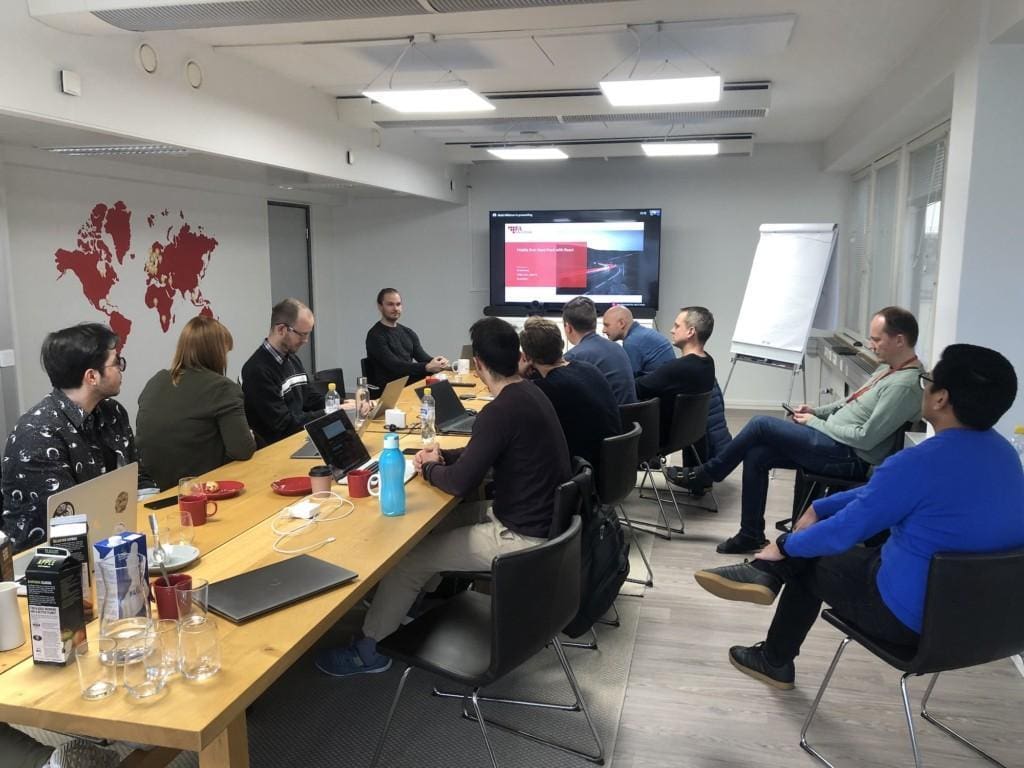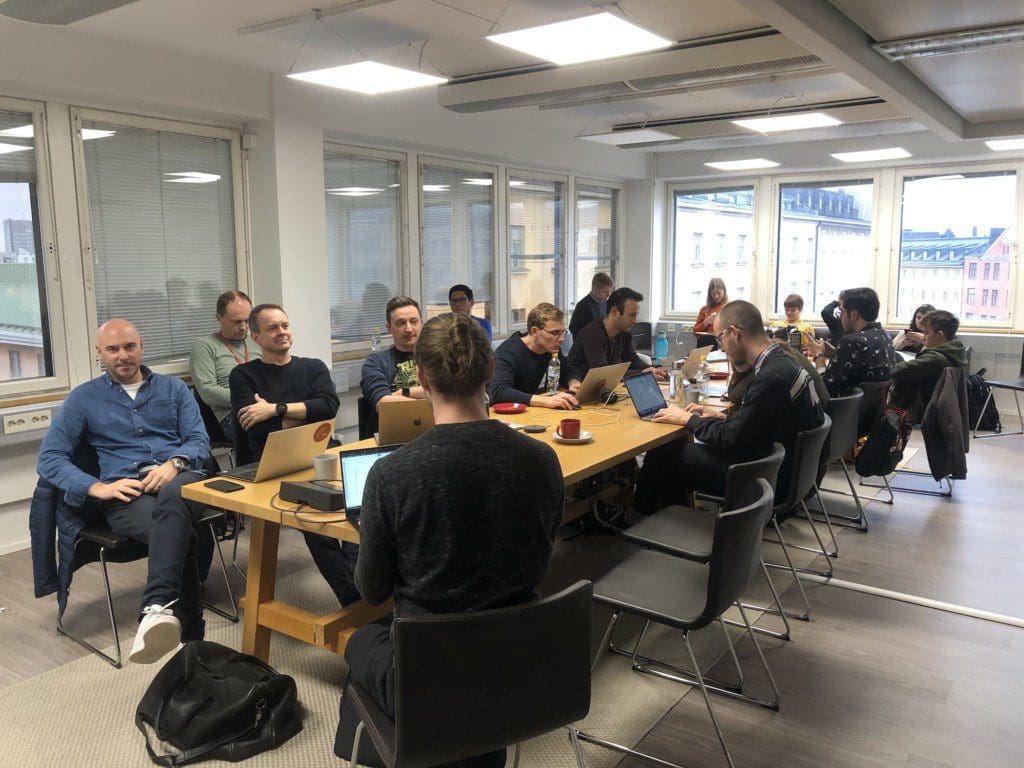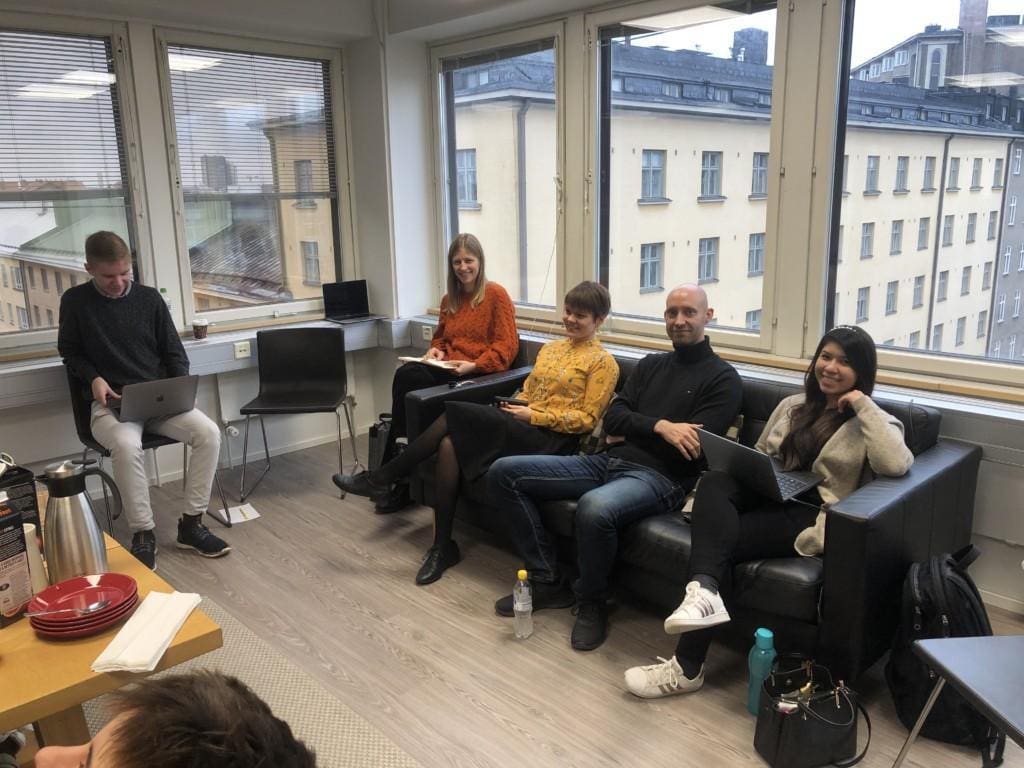The core values guiding FA Solutions’ product development as well as working style and culture are innovation, cooperation, and solution focus. These values are well promoted in our internal Hackathon events 2-3 times a year.
FA Hackathons are events where our employees get to team up and spend several days working on their own development ideas – even imaginative and out-of-the-box ones.
The latest FA Hackathon took place last week. The three-day event directed its attention to a diverse choice of projects, including investigating data analytics possibilities using Apache Superset, exploring new horizontal scaling options with KEDA and Knative, and building responsive mobile-first applications with React, Tailwind CSS, and FA’s GraphQL APIs.
Our team also explored automating internal product development processes with JIRA APIs and visualization tools, and ways to reduce ambiguity in our specification process.
“I’m a bit of a techie, so I like to keep up to date on new technologies. Hackathons give an excellent opportunity to spend a few days trying out a new technology, and seeing how it might fit into the FA Platform. Sometimes these technologies are a great match and we end up using them in the FA Platform, and sometimes they are not. Either way, we always get to try something new and learn about new things.”
Olli Jahkola, FA’s Head of Software Development
How to put new innovations and technologies into action?
The next step after a hackathon is that the product management will plan how to take the new ideas into action; could something be added directly into the next release plan or deployed in some other way in the future? There are several examples of new ideas and concepts resulting from our previous hackathons that have been put to practice.
“One example of technology exploration that ended up in the FA Platform was a hackathon topic titled ‘Micro-microservices with Quarkus’. The idea was to try out a technology called Quarkus (https://quarkus.io/), which might allow us to build faster and lighter-weight services for the FA Platform. During the hackathon, we successfully converted our simplest background service to this new technology. It has been part of the FA Platform from the 2021-Q2 version onward. We have further plans to convert additional services to Quarkus, and we have started to use Quarkus in some of our new service development!” Olli explains enthusiastically.
JupyterHub (https://jupyter.org/hub) is another technology that one of our Hackathon teams looked into previously. It allows us to embed Jupyter Notebooks within the FA Platform, to facilitate advanced data analysis with Python. Starting from the 2021-Q3 version, JupyterHub is an optional part of our FA Developer application.
Overall, the FA Hackathon was once again a success and a testament to the ingenuity of our team. The participants found the event a refreshing break from day-to-day work and felt that it provided an excellent opportunity to test new ideas and gather feedback on them.
“These hackathons are a great opportunity to innovate and try new ideas, technologies, and ways of working since they allow us to dedicate several days solely for this purpose. We might get new ideas among our regular everyday work as well, but usually don’t have time to test and execute them as in hackathons. Hackathons also allow us to work in teams with different people that we usually work with, which brings nice variety to day-to-day work and boosts innovation,” the participants summarize.



